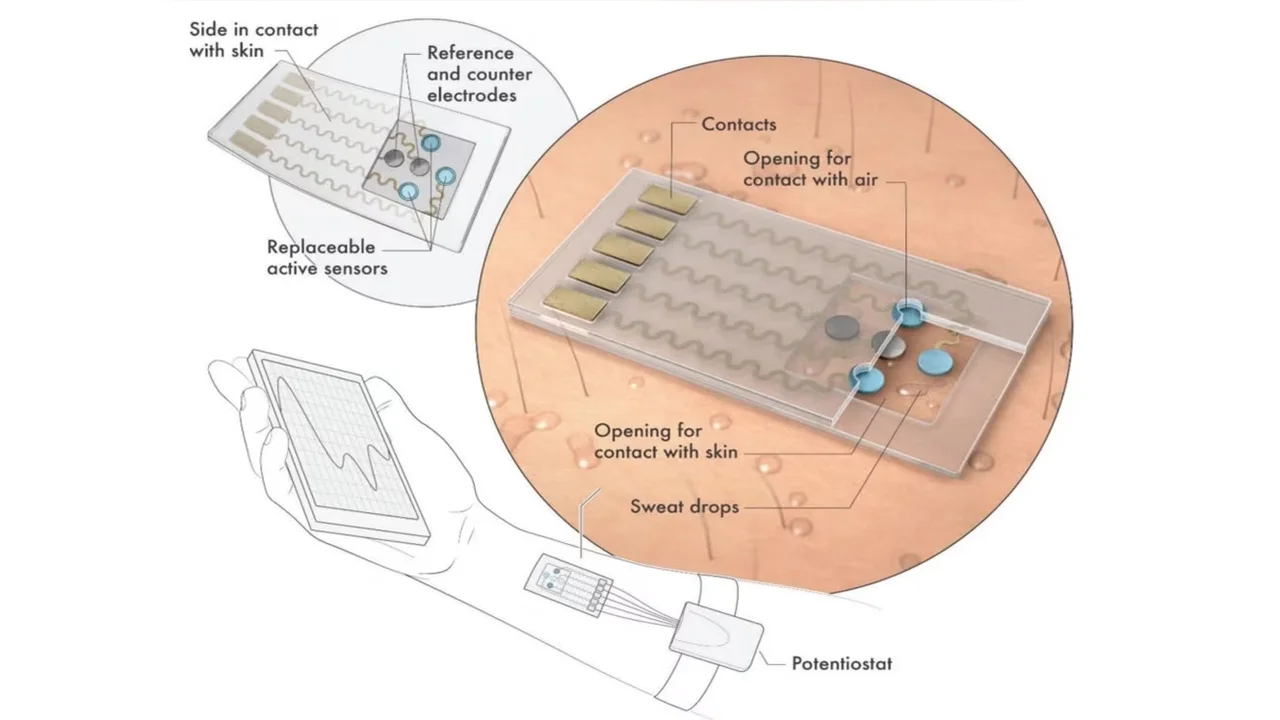
A MXene‐Based Wearable Biosensor System for High‐Performance In Vitro Perspiration Analysis
About
Yongjiu Lei, et al., "A MXene‐Based Wearable Biosensor System for High‐Performance In Vitro Perspiration Analysis". Small 15(19), 2019, 1901190.
Wearable electrochemical biosensors for sweat analysis present a promising means for noninvasive biomarker monitoring. However, sweat‐based sensing still poses several challenges, including easy degradation of enzymes and biomaterials with repeated testing, limited detection range and sensitivity of enzyme‐based biosensors caused by oxygen deficiency in sweat, and poor shelf life of sensors using all‐in‐one working electrodes patterned by traditional techniques (e.g., electrodeposition and screen printing). Herein, a stretchable, wearable, and modular multifunctional biosensor is developed, incorporating a novel MXene/Prussian blue (Ti3C2Tx/PB) composite designed for durable and sensitive detection of biomarkers (e.g., glucose and lactate) in sweat. A unique modular design enables a simple exchange of the specific sensing electrode to target the desired analytes. Furthermore, an implemented solid–liquid–air three‐phase interface design leads to superior sensor performance and stability. Typical electrochemical sensitivities of 35.3 µA mm−1 cm−2 for glucose and 11.4 µA mm−1 cm−2 for lactate are achieved using artificial sweat. During in vitro perspiration monitoring of human subjects, the physiochemistry signals (glucose and lactate level) can be measured simultaneously with high sensitivity and good repeatability. This approach represents an important step toward the realization of ultrasensitive enzymatic wearable biosensors for personalized health monitoring.